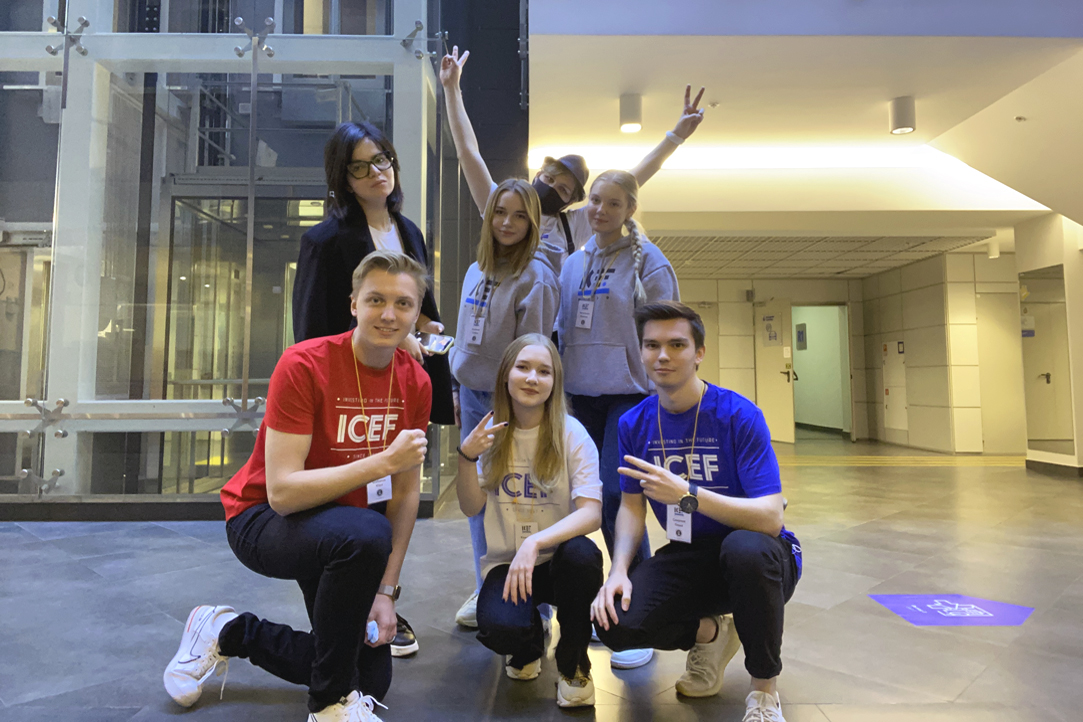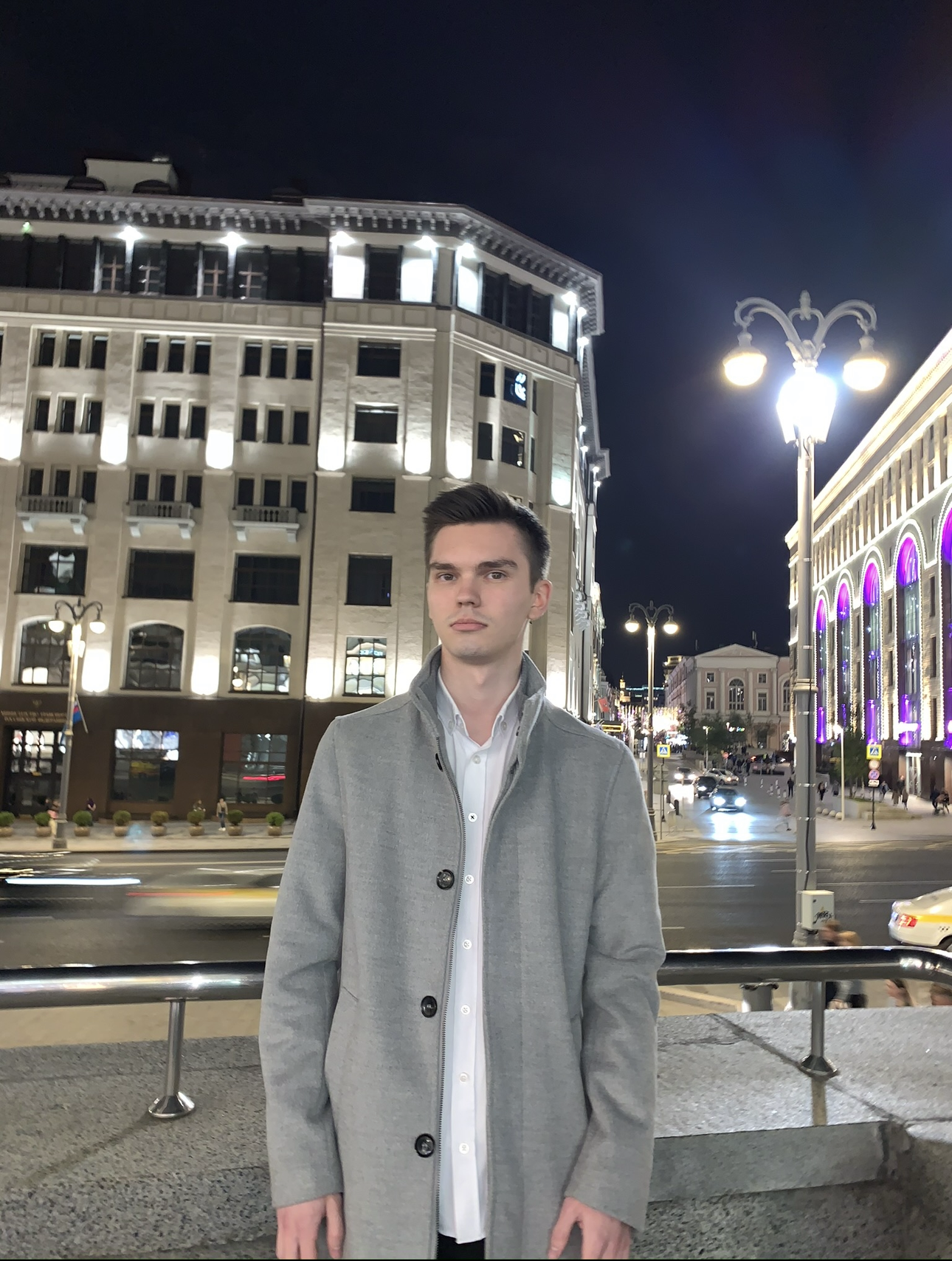Pavel Smirnov, Member of the ICEF Class of 2024: From first CV to banking job

Pavel, you made your decision to attend ICEF when you were a school student. Why ICEF?
As a school student, I very much enjoyed learning languages alongside STEM courses. I studied English and German and was even able to demonstrate my English skills at Model UN in Dallas, where I had the honour to present the draft environmental protection resolution on Malta. It was there that I first got the experience of being part of international community.
I learned about ICEF from an acquaintance of mine. He said his experience had been amazing. I, an eighth-grader at the time, went to ICEF Open Day and it was on that day that I decided to enroll. Strong teachers, a wide array of electives, and a large community of ambitious students – these are the ICEF’s assets I have benefitted most from.
It’s great when reality surpasses expectations. You were obviously enjoying your experience in every way. When did you first start thinking about getting a job?
After completing my first year. I was curious to see if I could put the knowledge I had gained during my first year into practice. But, my job search failed: with the majority of employers, student candidates are expected to have at least two years completed.
You completed your second year and started an internship right after. Can you tell more about that experience and how student internships work in general?
I landed my first internship after my sophomore year. It was a summer internship with Sber CIB, and it tasked me with analytics management and development of a new KPI system for Sber’s call center teams. My second internship was with Kept (ex-KPMG), a consulting company, where I was in corporate audit department. Then, a short break followed, after which I interned with Qiwi in its M&A and Venture Capital Department. I did that third internship in my fourth year of ICEF. It involved me in a large-scale study into corporate venture investment prospects and the regulation mechanisms existing for Fintech and crypto markets of Southeast Asia, Middle East and North Africa for further.
Did you wait long for those internship offers?
I started to explore the options right after passing my Y2 summer exams, responding to every posting that seemed interesting. In the case of Sber, the amount of time between response and offer was only a couple of weeks.
Overall, my experience has been that getting a job whilst in college isn’t difficult. The employers are well aware of ICEF and it’s not uncommon for the ICEF students to meet familiar faces when joining new teams.

How have your internships benefitted you in terms of knowledge and communication? What outcome can you cite as most productive for you?
Even though nearly all courses that I did at ICEF were hands-on in nature, there was some unique knowledge to gain from each of my internships. I was able to learn more about business while interning with Sber and I leveled up my Excel skills at Kept.
The most productive outcome for me was realizing that teams now enjoy much greater freedom of maneuver from their managers, the latter trusting the employees’ sense of responsibility and adequate performance. Bosses breathing down the employees’ necks are a thing of past. Your only limit is your abilities, so it’s very important to cultivate multicompetence and be versatile.
What field of knowledge were you most attracted to as your future specialization and why?
Trading and investing. I’ve had a passion for them since school. One elective that had caught my eye at ICEF Open Day was Practical Trading. I was among the students who were first to take it and I sailed through it with top grades. That course marked the start of my own investment portfolio – I began to engage in short-term trading. It wasn’t a smooth start, but as I gained experience I developed some useful habits that did help raise my initial capital.
Internships over, you started to look for a full-time job and turned to ICEF Career Services. How was it helpful?
ICEF Career Services was my first step towards achieving my dream career. Its course, taught by manager Victoria Pralich, covers all the ins and outs of job/internship search. Victoria helped me to write my first CV and Cover Letter. I was able to create my career trajectory.
Another helpful aid is ICEF Career Services’ channel on Telegram. It posts job vacancies from various employers and it was through this Telegram channel that I got my first internship at Sber.
You are now a specialist at one this country’s largest banks. What are your responsibilities?
I’m in capital markets sales, servicing institutional clients. My day-to-day responsibilities include making currency exchange deals and swaps with clients based in different countries. I’m in charge of my bank’s currency position and introduce new clients to our trading systems.
Customer communication forms an integral part of my job. By communicating with clients I can understand their needs and provide best-fit investment tools.

Which of the skills you learned at ICEF have been particularly useful in your line of work?
The skills I currently rely on most are those I learned from Macroeconomics course. It is the course that gives a better understanding of the dynamics of exchange rate. Thanks to it we, students, could see why the Central Bank had to change key rate and what other tools it used to slow down or reinvigorate the economic growth as early as in our first year.
Two more vital courses are Asset Pricing, which teaches financial instruments pricing, and Financial Intermediation, which gives an overview of the financial markets, their functions and agendas. They are highly useful sources of information about the many types of banks and financial organizations, how financial markets operate, and what core instruments they use.
Now that you have graduated, what seems to be your most important outcome from student life and studying at ICEF?
In addition to solid knowledge of economics and finance, I was able to network. The time I spent doing electives, contributing to volunteering work and extracurricular activities had introduced me to many ambitious people and great personalities. I’m still in touch with many.
Building a network with a large amount of people can benefit not only joint projects but also career growth. One day your former classmate might recommend you for a post, sparing you the struggle of job hunting.